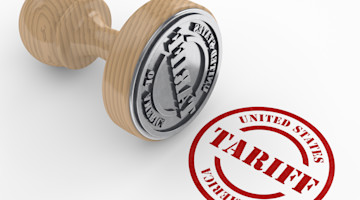Since 2019, the additive manufacturing industry has ridden a proverbial rollercoaster that hasn’t quite returned to the station. Two years beyond record-breaking investment and acquisition activity and a year into global recessionary concerns, additive manufacturing may be ready for one more climb. Revisiting the best financial leading indicators available will tell if that climb will be realistic and, for some, sustainable.


In high-growth technologies or industries, equity financial transactions are typically announced publicly and often include dollar amounts. When taken in aggregate, these investments and acquisitions reflect the sector’s collective entrepreneurial activity and the interest levels from financial and corporate strategic investors. For acquisition announcements, changes in ownership represent corporate interests in a technology’s future and corresponding supply chain implications. These data and trends illustrate a challenging 2023 and indicate the need for a more methodical and focused approach to growth for companies in additive manufacturing.
Additive Manufacturing Minority Investments
Investments in additive manufacturing are categorized by four groups separated by value chain position as well as technology.
Core investments represent developers across AM processes, 3D printers, and post-processing equipment alongside 3D printing service providers, online marketplaces, and other hardware technology enablers.
Applications companies include specialized service companies focused on a particular industry or product class, such as heat exchangers, consumer goods, or medical implants.
Materials investments cover materials suppliers, formulators, and developers.
Software includes companies with a specialization in additive manufacturing software across the computer-aided design, engineering, or manufacturing workflow.
(Note: All investment and M&A data excludes biological, construction, food, and desktop consumer-focused 3D printing companies.)
Global venture capital investment in additive manufacturing companies has decreased 44% from its $1.99 billion peak in 2022 to $1.11 billion in 2023. Since 2019, the $1.11 billion represents a 5.5% five-year compounded annual growth rate, which does little to capture the disproportionate decrease and subsequent investment excesses resulting from the global COVID-19 pandemic.
More notable for 2023 than the 44% drop due to changing investor sentiment across the investment landscape was the $579 million in applications investments. The 12 application deals in 2023 represented 21% of all deals and 56% of all dollars compared to the 22 application deals in 2022 with 28% and 33%, respectively. The 2023 data reinforces the investment trend observed the prior year: Applications matter.
Investors continue to focus on product-market fit opportunities with specialization and the promise of services at scale. Notable service business model companies that raised significant funding in 2023 include Divergent, Freeform, Seurat Technologies, Arris Composites, Alloy Enterprises, and Zeda. Furthermore, nearly all these companies have developed technologies or processes that help them offer differentiated manufacturing services.
Average investment size decreased to $23 million for 2023, down nearly 15% despite large investments into Seurat Technologies, Divergent, and Ursa Major. This decrease in the average is in line with fewer large investments in 2023 compared to an overexuberant 2021-2022 and also in line with publicly traded company values decreasing in 2022-2023.


Additive Manufacturing Mergers and Acquisitions
Mergers and acquisitions involving companies working in part or whole with additive manufacturing decreased from the 2021 high of 66 down to 41 transactions for 2022 and further to 24 transactions in 2023. The significant slowdown in M&A activity reflects the increased cost of capital due to rising interest rates alongside recessionary concerns and geopolitical uncertainty.
Looking at 2019 and 2020 as a basis, 2023 M&A activity should be viewed as typical for an industry that continues to add more new companies than the combination of consolidation and bankruptcy. The company types acquired in 2023 were also typical with nearly equal numbers of service businesses and technology businesses joining larger entities.
In light of 2023 activity, additive manufacturing remains a growth industry with double-digit year-over-year growth rates. While 2023’s venture investments trended down, the application focus was reaffirmed and retains some of the industry’s currently overshadowed successes. Similarly, stepping back to pre-pandemic M&A activity and taking stock of the low publicly traded company valuations should feel like a return to business fundamentals.
The AM roller coaster’s loops and turns appear to be coming to an end as the industry finally approaches the station, where a stable foundation awaits application companies and service business.


To read the rest of the Additive Issue of MT Magazine, click .









